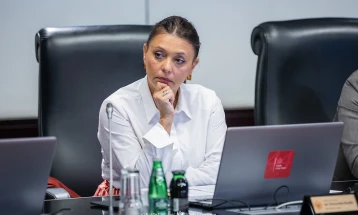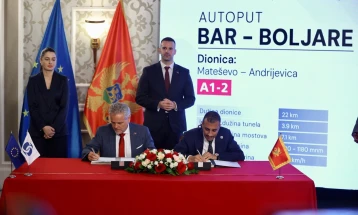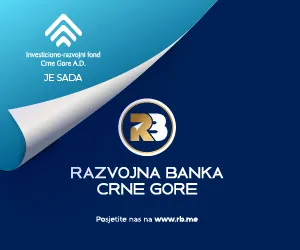Action: Inefficiency of Government in controlling corruption
- Action: Inefficiency of Government in controlling corruption
- Post By daniloc
- 12:58, 14 februar, 2002

According to statistics of the state prosecutor 317 denuncation were submitted last year in Montenegro for corruption. On the basis of those indictments 23 charges were brought and only 12 verdicts were pronounced, was announced by the network of non-governmental organizations "Akcija".
It was estimated in its document called "Insight into reforms in Montenegro", which was consisting part of the project Reforms for healthy society, that these data show inefficiency of Government in controlling corruption.
It was said in this report that 246 charges were brought due to misuse of the official position, 59 due to violation of authorization in economy, while eight of them were brought due to acceptance and four due to offering bribery.
"Public is of opinion that the competent state institutions were not efficient enough in controlling and punishing the act of corruption (especially in the highest institutions of the authority) that is still out of reach of investigative and legislative organs. Inefficiency exists due to the non-existence of the adequate regulations and technical equipment of the investigative subjects, specialized knowledge as well as the height of salaries of the employed in the institutions sensitive to corruption, especially in the police department, financial police, customs administration, judiciary and courts#, estimated authors of the document.
It was said in the report that the state prosecutor and the police did not have specialized services in charge of struggling against corruption, organized criminal and money laundry and that Anti-corruption agency was only coordinating the work of the competent state organs in preparing the law and communicating with Anti-corruption initiative of the Stability pact.
"Corruption in Montenegro is result of poor standard of living, sanctions of the international community but it is also an index of responsibility of the state institutions and the authorities in creating socio-political and legal ambient that incites corruptive behaviour", was said in the document.
Authors of this document also claim that inefficient preventing of corruption also results form the simultaneous appliance of the republic and federal criminal laws and laws on criminal proceeding.
They added that Montenegro had an anachronous and inefficient legal system, not adjusted to the new changes in the society and it could represent an important limiting factor for reforms and development of the state.
It was proposed in the document law on corruption to be reformed. Those reforms include changes of the criminal legislation, passing of new regulations and ethical codex, foundation of specialized institutions for this sphere and strengthening of the existing ones.
"Existing criminal laws are treating corruption in general and it makes appliance of regulation difficult especially in the process of privatisation, conflict of interests, unrestricted managing with money form the budget, public purchases, legislation, health, education and sport", was explained in the document.
Authors consider that anti corruption struggle should include supervising the appliance of Law on public and budget as well as passing of Laws on conflict of interests, free access to information, financing of political parties, preventing money laundry, wealth tax, anticorruption, parliamentary investigation and ombudsman.
"Institutions predicted by lately passed law on public purchase and budget have not still been established so the procedure of spending of the state money is still far from the necessary level of transparency and openness. There have been no court proceeding conducted on inadequate usage of money from the budget even though the scandals have been revealed", was said in the "Insight into reforms in Montenegro".












